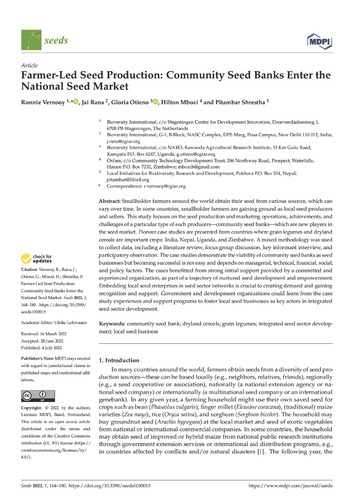Farmer-led seed production: Community seed banks enter the national seed market
Smallholder farmers around the world obtain their seed from various sources, which can vary over time. In some countries, smallholder farmers are gaining ground as local seed producers and sellers. This study focuses on the seed production and marketing operations, achievements, and challenges of a particular type of such producers—community seed banks—which are new players in the seed market. Pioneer case studies are presented from countries where grain legumes and dryland cereals are important crops: India, Nepal, Uganda, and Zimbabwe. A mixed methodology was used to collect data, including a literature review, focus group discussion, key informant interview, and participatory observation. The case studies demonstrate the viability of community seed banks as seed businesses but becoming successful is not easy and depends on managerial, technical, financial, social, and policy factors. The cases benefitted from strong initial support provided by a committed and experienced organization, as part of a trajectory of nurtured seed development and empowerment. Embedding local seed enterprises in seed sector networks is crucial to creating demand and gaining recognition and support. Government and development organizations could learn from the case study experiences and support programs to foster local seed businesses as key actors in integrated seed sector development.

